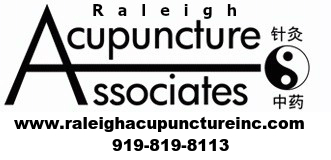Postural orthostatic tachycardia syndrome (POTS) causes severe dizziness triggered by standing up and exertion. Common symptoms include lightheadedness, fainting, anxiety, and racing heart. The Raleigh Acupuncture POTS treatment eases symptoms by restoring balance to the body.

POTS Symptoms
POTS symptoms are uncomfortable and frightening. Patients with POTS usually suffer from two or more of the following symptoms. Not all patients with POTS will have all of these symptoms.
- High/low blood pressure
- Racing heart rate
- Anxiety and fear
- Chest pain
- Dizziness/lightheadedness, especially in standing up, prolonged standing in one position, or on long walks
- Fainting or near-fainting
- Exhaustion/fatigue
- Abdominal pain, bloating, and nausea
- Temperature deregulation (hot or cold)
- Nervous, jittery feeling
- Forgetfulness and trouble focusing (brain fog)
- Blurred vision
- Headaches and body pain/aches (may feel flu-like); neck pain
- Insomnia and frequent waking from sleep
- Chest pain and racing heart rate during sleep
- Shakiness/tremors, especially with adrenaline surges
- Discoloration of feet and hands
- Exercise intolerance
- Excessive or lack of sweating
- Diarrhea and/or constipation
Who is at risk for POTS?
Most POTS patients are women between 13 and 50 years old. Approximately 450,000 people suffer from POTS in the United States. Patients can develop POTS after a viral illness, medical illness, pregnancy, or trauma such as head injury.
POTS may develop following mononucleosis (Epstein-Barr).
People with autoimmune conditions like Sjogren’s syndrome and celiac disease seem to be at higher risk.
Mainstream Treatment for POTS
There are currently no Western medical cures for POTS. In fact, the condition is not well understood. As a result, doctors often misdiagnose their patients with generalized anxiety or unexplained dizziness and prescribe vertigo, depression, or pain medications, which do not help.
Raleigh Acupuncture POTS Treatment
Acupuncture reduces the symptoms and corrects the underlying imbalances responsible for POTS. From a Chinese medical perspective, this condition typically presents as Spleen and Heart deficiency. Therefore, strengthening the spleen for dizziness and heart for anxiety naturally relieves the patient with long-lasting benefits.
Imbalance is the root of most diseases. Acupuncture restores balance – so no matter what the condition, treatments tend to ease symptoms. This approach to healing comes in handy when dealing with poorly understood diseases, like autoimmune conditions. Doctors don’t have a pharmaceutical medication yet for POTS, but in the meantime, acupuncture can help, the same way it’s been treating diseases for the past two thousand years.
Here’s an overview of the Chinese medicine process:
- The patient’s symptoms point to specific pattern imbalances. For example, dizziness and fatigue indicate Spleen Qi Deficiency with Dampness Accumulation in the head.
- A Chinese medicine diagnosis informs our treatment plan. This particular diagnosis calls for applying acupoints ST36, SP9, SP3, CV12, CV6, LI11, and Si shen cong.
- Chinese herbal medicine is often added to the treatment to strengthen its effect. For example, the herbal formula Xiang Sha Liu Jun Zi Pian addresses Spleen Qi Deficiency with Damp Accumulation.
- Together, acupuncture and herbs correct the internal imbalances responsible for the patient’s POTS symptoms, easing their pain and improving their quality of life.
- The Raleigh Acupuncture POTS treatment results are long-lasting because we treat at the root level.

Acupuncture Relieves POTS
The Raleigh Acupuncture POTS Treatment is safe and relaxing. All needles are sterile, single-use, and hair-thin. Treatments are relaxing – many patients fall asleep during their sessions. Afterward, you feel refreshed and rejuvenated.
Recent POTS Case
A 26-year-old woman came to our clinic having been diagnosed with POTS by her primary care physician. She had frequent dizzy spells, fatigue, and mental fog. Her heart raced throughout the day, accompanied by intense feelings of anxiety. In addition, her tongue was pale and swollen with scallops, and her pulse was weak.
Our patient’s symptoms indicated a Chinese medicine diagnosis of Spleen Qi and Heart Blood Deficiency with Dampness Accumulation. Therefore, her treatment focused on strengthening her Spleen Qi and building Heart blood. We applied the following acupuncture points to her treatment: ST36, ST40, SP6, PC6, HT7, CV17, GB2, and GV20. In addition, we prescribed the herbal formula Gui Pi Pian to address her combined Spleen and Heart deficiency.
After treating her four times (once a week), she reported feeling 40 percent fewer symptoms. We continued treatment another four weeks, at which time she felt 60 percent better. At this point, her progress plateaued – however, she was able to sustain these benefits moving forward by coming in once a month for maintenance. In this case, acupuncture significantly improved her quality of life while not wholly resolving her condition. Acupuncture is an effective disease management tool for many difficult-to-treat health conditions.
Next Steps
Try the Raleigh Acupuncture POTS treatment if you have been diagnosed with POTS. If you have not been diagnosed but have symptoms similar to those listed above, explore acupuncture as a treatment option. Chances are, it will bring you relief.
BOOK NOW to schedule an appointment online.
Learn about all the conditions we treat.
Additional POTS Information
Information about POTS published by the National Institutes of Health (NIH).





